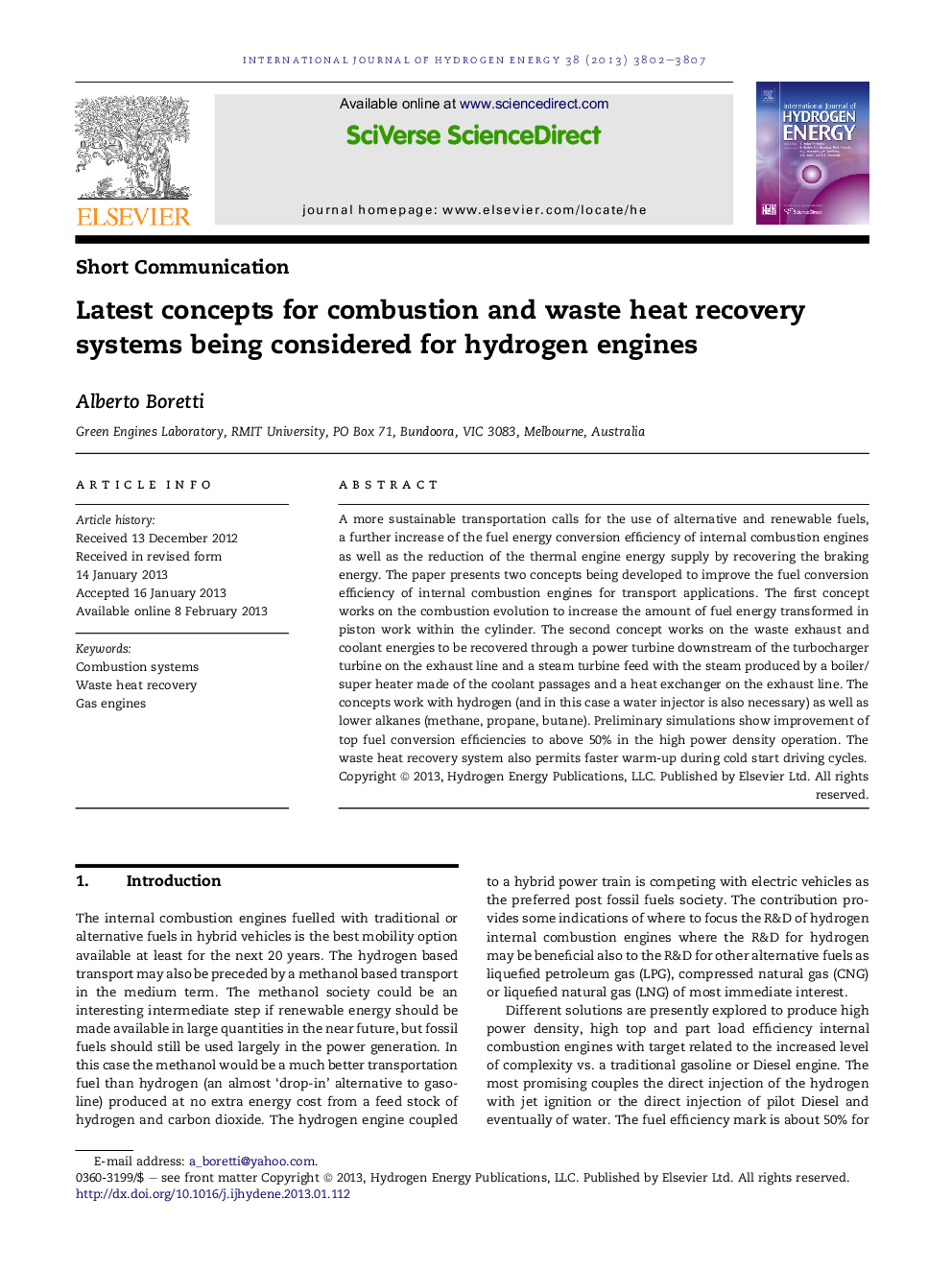| Article ID | Journal | Published Year | Pages | File Type |
|---|---|---|---|---|
| 1275600 | International Journal of Hydrogen Energy | 2013 | 6 Pages |
A more sustainable transportation calls for the use of alternative and renewable fuels, a further increase of the fuel energy conversion efficiency of internal combustion engines as well as the reduction of the thermal engine energy supply by recovering the braking energy. The paper presents two concepts being developed to improve the fuel conversion efficiency of internal combustion engines for transport applications. The first concept works on the combustion evolution to increase the amount of fuel energy transformed in piston work within the cylinder. The second concept works on the waste exhaust and coolant energies to be recovered through a power turbine downstream of the turbocharger turbine on the exhaust line and a steam turbine feed with the steam produced by a boiler/super heater made of the coolant passages and a heat exchanger on the exhaust line. The concepts work with hydrogen (and in this case a water injector is also necessary) as well as lower alkanes (methane, propane, butane). Preliminary simulations show improvement of top fuel conversion efficiencies to above 50% in the high power density operation. The waste heat recovery system also permits faster warm-up during cold start driving cycles.
► Shaping of heat release increases the fuel energy transformed in piston work within the cylinder. ► Recovering exhaust & coolant energies through power & steam turbines produces further work. ► Top brake efficiencies are above 50% and efficiency marginally reduces changing load or speed.
